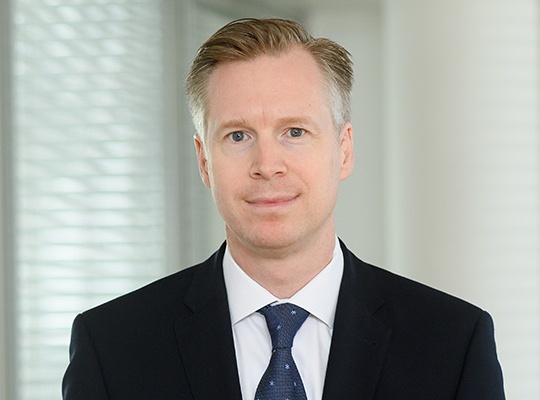COVID-19 Coronavirus: German Government Stimulus Package for Private Equity and Venture Capital-financed Companies
Both the German Federal Government and the German Federal States have enacted a variety of new financial support programs aimed at mitigating the economic consequences that the COVID-19 pandemic has on the German economy.
Generally, private equity financed companies and start-ups, both VC-financed and bootstrapped, can access the various protective financial programs as amended or newly established by the German Federal Government as a response to the current pandemic. Since many young German companies and in particular start-ups may have difficulties meeting the applicable eligibility criteria, the German Federal Government reacted to this particular need by designing a special support program for these companies.
ECONOMY STABILIZATION FUND
On March 27, 2020, the German parliament (Bundestag) adopted various legislative amendments that together represent the first step towards the implementation of the COVID-19 Governmental Protective Shield. As part of this legislative initiative, the Economy Stabilization Fund was set up (Wirtschaftsstabilisierungsfonds, "ESF").
The purpose of the ESF is to stabilize those businesses of the real economy outside the finance sector in relation to which a threat to their existence would have a significant impact on the economy, technological sovereignty, supply security, critical infrastructure and labor market in Germany.
The Federal Ministry of Economics (Bundeswirtschaftsministerium) is the competent authority deciding on applications for benefits under the ESF. In its decision-making process, the Federal Ministry of Economics must take into account the importance of the applicant for the German economy, the urgency, effects on the labor market and competition concerns.
Volume and Designated Purposes
The ESF has been equipped with €600 billion which are designated to be used as follows:
- up to €400 billion for public guarantees to secure credits issued by local banks;
- up to €100 billion for recapitalization measures by way of participation in subordinated debt instruments, hybrid bonds, silent partnerships, convertible bonds and even through direct equity investments; and
- up to €100 billion for refinancing of special programs issued by the German Development Loan Corporation (Kreditanstalt für Wiederaufbau, “KfW”).
General Eligibility Test for Companies
To be eligible for benefits under the ESF, applicant companies must meet the following criteria:
- the applicant's need for financial support must have specifically resulted from the COVID-19 pandemic,
- as of 31 December 2019 it must not have been an “undertaking in difficulty" pursuant to the EU definition, which defined an "undertaking in difficulty" as a company that will almost certainly be forced to cease operations in the short or medium term if the government does not intervene. For instance, an undertaking in the form of a limited liability company is deemed to be in difficulty in case more than half of its subscribed share capital has been lost as a result of accumulated losses. When the undertaking is not a small or medium-sized enterprise (“SME”) as defined by the EU commissions’ recommendation, the undertaking is deemed to be in difficulty if for the past two years (i) the undertaking's book debt to equity ratio has been greater than 7,5 and (ii) the undertaking's EBITDA interest coverage ratio has been below 1,0;
- no other funds or financing options are available to the applicant to overcome the liquidity constraints caused by the COVID-19 crisis;
- following the implementation of the stabilization measures through the EFS benefits, there must be a positive going concern perspective for the time after the end of the crisis; and
- the applicant must have a sound and prudent business policy which includes, amongst others, a contribution to job security in Germany.
Eligibility Test Based on Company Size
In addition, the applicant company must generally (i.e. save for the exceptions described below) meet at least two of the following three criteria in the two most recently completed financial years before 1 January 2020:
- total assets on the balance sheet exceeding €43 million;
- revenues exceeding €50 million;
- annual average number of employees exceeding 249.
Special Rules for Start-Ups and Emerging Companies
Many young German companies like start-ups and emerging companies may have difficulty meeting the criteria regarding the balance sheet assets, revenues and workforce size. Therefore, in order to not shut the entry door to ESF for those companies from the outset, the ESF states that companies that do not meet the criteria regarding balance sheet assets, revenues and workforce size can still be eligible for benefits under the ESF if they fall within one of the following categories:
- companies that provide services or produce or deliver goods that are particularly relevant for the economy, the security or the common welfare in Germany, i.e. companies operating in one of the sectors listed in Section 55 of the German Foreign Trade Regulations (Außenwirtschaftsverordnung) which includes, amongst others, companies operating in the sectors energy, information technology and telecommunication, transport and infrastructure, healthcare, water, nutrition as well as in the finance and insurance sector; or
- companies of comparable importance to the security or the economy in Germany; or
- companies that ran at least one financing round with private investors since January 01, 2017 which led to a post money company valuation exceeding €50 million.
KfW LOAN PROGRAMS
On April 6, 2020, the German government also launched the KfW Special Program 2020, which includes the new program KfW Instant Loan 2020 and considerably modified and extended already-existing programs KfW Entrepreneur Loan and ERP Founder Loan to address the financial needs of the German economy resulting from the COVID-19 pandemic. In addition, the special program “Direct Equity Investment in Structured Financing Schemes” facilitates large-scale syndicate financings whereby KfW assumes a relevant default risk share. The funds made available by the Government for these loan programs are unlimited.
KfW Instant Loan 2020
The KfW Instant Loan 2020 is targeted at SMEs and intended to bridge their acute liquidity shortages resulting from the COVID-19 crisis. It is meant to be an “easy-to-apply immediate loan” that shall be granted with no further risk assessment by the financing bank of KfW.
- Eligibility
- active on the market since at least 1 January 2019;
- generated profits in 2019 or compound profits over the last three years;
- more than ten employees; and
- no financial difficulties before 31 December 2019.
- Credit Volume
Up to three monthly turnovers, with- a maximum of €800,000 for companies with more than 50 employees; and
- a maximum of €500,000 for companies with up to 50 employees.
- Terms and Conditions
- if PE owned, no capital distributions or others leakages to PE investors during loan term;
- interest rate of 3% p.a.
- term of ten years with an interest only period of up to two years;
- KfW assumes 100% of default risk, hedged by a guarantee from the German Federal Government;
- no collateral required;
- the credit approval process does not involve additional credit risk assessment by the bank or KfW.
KfW Entrepreneur Loan / ERP Founder Loan
Whilst the KfW Entrepreneur Loan is targeted at mature businesses that are operating for at least five years, the ERP Founder Loan is targeted at young businesses that have been operating for less than five years.
The KfW Entrepreneur Loan and the ERP Founder Loan can be used to finance working capital but also for investments in other companies, acquisition of assets and takeover acquisitions, but not for refinancing of existing debt.
- Eligibility
- Active on the market for at least five years (KfW Entrepreneur Loan) or operating for less than five years (KfW ERP Founder Loan);
- no financial difficulties before 31 December 2019;
- positive-going concern prognoses.
- Credit Volume
Up to €1 billion, but maximum of- 25% of the annual turnover of the entire group in 2019; or
- twice the wage costs in 2019; or
- in case the applicant is a small or medium sized company (i.e. those with revenues smaller €50 million and less than 250 employees – “SME”) the financing requirements for the next 18 months; or
- in case of large enterprises the financing requirements for the next 12 months, or
- 50% of the total debt in the case the loan exceeds €25 million.
- Terms and Conditions
- loan term of up to five years with an initial interest-only period of one year; and
- in case the applicant is a SME KfW assumes 90% of the default risk, hedged by a guarantee from the German Federal Government;
- in case the applicant is a large company, KfW assumes 80% of the default risk, hedged by a guarantee from the German Federal Government;
- individual interest rate (between 1% and 2.12% p.a.) and type and amount of security will be determined by the applicant’s bank or financing partner.
KfW Special Program for Syndicate Financing
The KfW Special Program for Syndicate Financing is targeted at medium-sized and large enterprises that have a need for financing of either their working capital or of an investment project in Germany.
- Eligibility
- the applicant's need for financial support must have specifically resulted from the COVID-19 pandemic,
- applicant is a domestic or foreign commercial enterprise that is mainly privately owned and plans an investment in Germany;
- as of 31 December 2019 it must not have been an “undertaking in difficulty" pursuant to the EU definition that defines an "undertaking in difficulty" as a company that will almost certainly be forced to cease operations in the short or medium term if the government does not intervene; and
- positive-going concern prognoses.
- Credit Volume
- KfW participates in debt financing at market conditions and on pari passu terms as the other syndicated banks;
- KfW loan share is at least €25 million, but limited to
– 25% of the annual turnover of the entire group in 2019; or
– twice the wage costs in 2019; or
– current financing requirements for the next 12 months;
- Terms and Conditions
- loan term of up to six years;
- KfW assumes 80% of the default risk, hedged by a guarantee from the German Federal Government;
- program is limited until December 31, 2020.
SPECIAL SUPPORT PROGRAM FOR START-UPS (FUTURE FUND)
Ordinary credit financing instruments are often not well suited to the needs of young technology companies, start-ups or emerging companies, since their balance sheet and cash-flow situation and the mostly innovative business model do often not meet the requirements placed by banks on borrowers.
On April 1, 2020, the German government announced a plan to establish a special financial support program targeted specifically at start-ups and young emerging companies (“Special Start-up Support Program”), which provides specific support for start-ups in addition to programs available potentially under the ESF. This Special Start-up Support Program will have a total volume of €2 billion, it will complement the other COVID-19-specific support programs already in existence (including the ESF and the KfW Special Loan Programs), and it will be part of, and anticipate, the so-called Future Fund (Zukunftsfond) program for start-ups with an envisaged total volume of €10 billion, which has been in the planning phase the last months, but not yet implemented.
The Special Start-up Support Program shall provide for the following measures intended to be gradually implemented:
- Public venture capital investors on fund and umbrella fund (Dachfonds) levels (e.g. KfW Capital, European Investment Fund, High-Tech Gründerfonds, coparion) will be provided with public funding in the short term that can be used for them to participate in financing rounds of start-ups in the framework of a co-investment together with private investors (so called “matching”).
- The public umbrella fund investors KfW Capital and the European Investment Fund (EIF) shall get enabled to take over shares from defaulting private investors.
- For small start-ups that are not yet funded by VC investors and for SMEs, the financing with venture capital and equity substituting forms of financing shall be facilitated.
In particular the option for public VC investors to co-invest alongside private investors appears to be an attractive solution for many start-ups. This means if existing shareholders or new private investors decide to fund the start-up with fresh money, the public VC investor can “match” the funding on the same terms and conditions as the private investors. The particulars of the matching terms are still under discussion and unclear. It is for instance yet unclear what matching ratio the public VC investor can apply. The European Investment Funds (EIF) does currently still apply a 50:50 ratio but according to rumors, the German government is considering to open to matching ratio of up to 70:30. It is expected that the matching options shall not only apply to equity investments, but also to debt instruments, including convertible loans. Further developments in that respect are expected to be announced by the German government within the next couple of weeks.
It is important to note though, that the matching is only permissible for investments that are used to address a financial need of the start-up caused by the Covid-19 pandemic.
EMERGENCY LIQUIDITY SUPPORT PROGRAMS (SOFORTHILFEPROGRAMM)
On 27 March 2020, the German government established an emergency liquidity program (Soforthilfeprogramm) for small companies, self-employed professionals, freelancers and farmers with a total volume of €50 billion. Under the emergency liquidity support program, small companies with up to ten employees (on a FTE basis) can receive up to €15.000 as one-time non-repayable grant to cover the operating costs.
REGIONAL SUPPORT PROGRAMS
Finally, alongside the various support programs set up by the German government, the German federal states also established support programs to address the impact the COVID-19 crisis continues to have on companies operating in the relevant regions. The purpose of those state programs is to secure the continued existence of the local economy and thereby securing jobs through the bridging of liquidity shortages, including for ongoing operating costs. The state support programs include the payment of one-off non-repayable grants, but also governmental support of the financing partners through the widening of the scope of guarantee programs by the state banks (which are regional government backed banks on a state level similar to KfW on a federal level).
SUPRANATIONAL SUPPORT PROGRAMS
In a further response to the COVID-19 pandemic crisis, the European Central Bank (ECB) launched the pandemic emergency purchase program (PEPP), a €750 billion scheme to purchase certain eligible financial assets. This scheme includes the corporate sector purchase program (CSPP) under which bonds issued by non-bank corporations can be purchased.
In order to qualify for purchase under the CSPP, debt instruments must have either (i) an initial maturity of 365/366 days or less and a minimum remaining maturity of 28 days at the time they are bought, or (ii) an initial maturity of 367 days or more, a minimum remaining maturity of six months and a maximum remaining maturity of less than 31 years (i.e. purchases of securities with a remaining maturity of 30 years and 364 days are possible) at the time they are bought.
Corporate debt instruments issued by corporations incorporated in the euro area but whose ultimate parent is not established in the euro area are eligible for purchase under the CSPP, provided that they fulfil all other eligibility criteria. The CSPP purchases are carried out by six National Central Banks acting on behalf of the ECB, including the Deutsche Bundesbank. The ECB coordinates the purchases under the CSPP.




